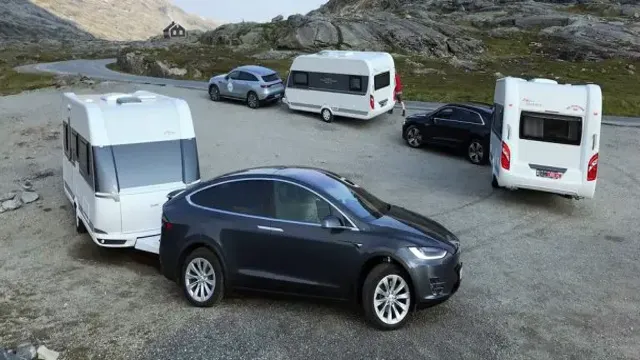Electric Cars: Driving Towards a Greener Future for Our Planet
Electric cars have become increasingly popular in recent years, and for good reason. Not only do they provide a more sustainable way of transportation, but they also have the potential to significantly reduce carbon emissions and help save the planet. With the threat of climate change looming over us, it’s important to consider the impact our daily choices have on the environment.
By switching to an electric car, we can take a step towards a greener, cleaner future. But how exactly do electric cars work? What are the advantages and disadvantages? And, most importantly, can they really make a difference? Let’s take a closer look at the world of electric cars and how they can help us save the planet.
What are electric cars
Electric cars are becoming increasingly popular as more people are looking for ways to help the planet. These vehicles are designed to run on electricity, which means they produce zero emissions. This is in contrast to traditional gasoline cars, which emit harmful pollutants into the atmosphere.
By choosing an electric car, you can significantly reduce your carbon footprint and contribute to a healthier environment. Additionally, there are many other benefits to driving an electric car. They are typically quieter, smoother, and require less maintenance than traditional cars.
Plus, the overall cost of ownership is often lower, as the cost of electricity is generally less than gasoline. So if you’re concerned about the environment and looking for a better way to get around, consider an electric car. It’s a smart, sustainable choice that can make a real difference for the planet and for your wallet.
Definition of electric cars
Electric cars are vehicles that run purely on electricity. Instead of using gasoline or other fuels, they rely on batteries that are charged with electrical power. These cars are equipped with electric motors that convert the energy stored in the batteries into mechanical power, which then propels the car.
Electric cars can be plugged into a charging station, much like a cell phone, to recharge the batteries. They are environmentally friendly since they emit no harmful pollutants or greenhouse gases, and they are much quieter than traditional cars. Unlike gasoline-powered vehicles, electric cars have instant torque and acceleration, making them great for city driving or low-speed cruising.
However, electric cars have limitations when it comes to long-distance travel, as they rely heavily on battery life and charging infrastructure. Overall, electric cars are a clean and efficient alternative to gas-powered cars, providing a more sustainable future for transportation.

Different types of electric cars
Electric cars have become increasingly popular in recent years as people look for more sustainable ways to get around. These vehicles use electricity stored in batteries to power an electric motor, thereby eliminating the need for gasoline or diesel fuel. There are a few different types of electric cars on the market today, including battery electric vehicles, plug-in hybrid electric vehicles, and hybrid electric vehicles.
Battery electric vehicles are powered solely by electricity and must be plugged in to recharge. Plug-in hybrid electric vehicles also use electricity stored in batteries, but they also have a backup gasoline engine that can kick in if the battery runs out of charge. Hybrid electric vehicles, on the other hand, combine a gasoline or diesel engine with an electric motor to achieve better fuel efficiency.
No matter which type of electric car you choose, you’ll be doing your part to reduce your carbon footprint and help the environment.
Environmental benefits of electric cars
Electric cars have many environmental benefits that can help the planet. One of the most significant benefits is reducing harmful greenhouse gas emissions. As electric cars use electricity to power their engines instead of fossil fuels, they produce significantly fewer emissions.
The emission is minimal, and often it can be compensated through renewable energy sources such as solar or wind power. Furthermore, electric vehicles do not produce carbon monoxide, nitrogen oxides, and other harmful pollutants that traditional vehicles emit. Therefore, they improve air quality and reduce the overall carbon footprint.
In addition to this, electric cars are much quieter than petrol or diesel cars, which can reduce noise pollution in urban environments. The fewer emissions from electric cars help in reducing air and noise pollution that has a positive impact on human health. Overall, opting for an electric vehicle is a greener choice that can significantly reduce the adverse environmental impacts of conventional vehicles.
Reducing carbon footprint
Electric cars, also known as EVs, are becoming increasingly popular due to their environmental advantages. Unlike their gasoline-powered counterparts, electric cars do not emit harmful pollutants into the atmosphere. Therefore, electric cars can help reduce carbon emissions and air pollution, leading to a cleaner environment and a healthier life for individuals.
EV owners can significantly reduce their carbon footprint, which is the measure of the amount of carbon that is released into the environment due to their daily activities. Switching to an electric car is one of the easiest ways to reduce your carbon footprint since electricity generation is often much less polluting compared to gasoline combustion. Plus, with the increase in renewable energy sources, such as solar and wind power, electric cars are becoming even greener.
With all the benefits that electric cars offer, it is not surprising that they are becoming more popular and are starting to be seen as the future of the automotive industry.
Reducing air pollution
Electric cars are becoming more and more popular due to their environmental benefits, especially in relation to air pollution. One of the biggest benefits of electric cars is that they emit zero pollutants from their tailpipe, which drastically reduces the amount of harmful pollutants present in the air. This is because electric cars use electricity stored in their batteries to power their motors, rather than combusting fossil fuels like gasoline or diesel, which emits harmful toxins.
Not only does this reduce air pollution in urban areas, but it also reduces the amount of greenhouse gas emissions that contribute to climate change. As more and more people switch to electric cars, we can expect to see significant reductions in air pollution and a cleaner, healthier environment for all.
Reducing noise pollution
Reducing noise pollution is one major environmental benefit of electric cars. Traditional gasoline-powered cars make a lot of noise, especially during acceleration. This noise pollution can be disturbing to the surrounding environment and even cause health problems, such as hearing loss and stress.
Electric cars, on the other hand, are much quieter due to their electric motors, which produce no noise pollution. Not only is this beneficial for those living near busy roads and highways, but it also helps to reduce overall noise pollution levels in urban areas. It’s like the difference between a leaf blower and a broom.
The leaf blower produces a loud noise that disturbs the peace, while the broom quietly gets the job done without any fuss. Electric cars are much the same, providing the same level of function without adding extra noise to the surrounding environment. Thus, transitioning to electric cars can help us reduce noise pollution, making our cities quieter and more peaceful places to live.
Financial benefits of electric cars
Electric cars have become a popular choice for environmentally conscious individuals. Not only do they help the planet by reducing carbon emissions, but they offer financial benefits as well. For starters, electric cars are cheaper to maintain than traditional gas-powered vehicles.
They don’t require oil changes, which can save hundreds of dollars over time. Additionally, electric cars have a more efficient and longer-lasting engine, leading to lower overall repair costs. Another financial benefit is the cost of fuel.
Because electric cars rely on electricity rather than gasoline, the cost of fuel is significantly lower. This can save drivers thousands of dollars over the lifetime of their vehicle. Additionally, many governments offer incentives for purchasing electric cars, like tax credits or rebates, which can further reduce the cost.
So not only are electric cars helping the planet, but they’re also a smart financial investment.
Lower operating and maintenance costs
Electric cars offer significant financial benefits, primarily due to their lower operating and maintenance costs. Unlike gasoline-powered vehicles, electric cars run on electricity, which is much cheaper than gasoline. Also, electric vehicles require less maintenance and service, primarily because they have fewer moving parts than traditional cars, which means less wear and tear.
Additionally, electric cars don’t require regular oil changes, air filter changes, or exhaust system replacements, saving you hundreds of dollars a year. The savings on operating and maintenance costs can add up quickly, making electric cars an attractive option for budget-conscious buyers. Furthermore, as more people switch to electric cars, the cost of batteries and other components is likely to come down, contributing to even more significant long-term savings.
In conclusion, electric cars offer a compelling financial case, leading to a reduced financial burden and stress.
Government incentives and tax credits
One of the biggest draws of buying an electric car is the financial benefits that come with it. Many governments around the world are offering incentives and tax credits to encourage people to make the switch to electric vehicles. These incentives can include rebates on the purchase price of the car, free charging stations, and reduced or waived annual fees.
In some regions, electric car owners can even take advantage of reduced toll fees and HOV lane access. These incentives can help offset the higher upfront cost of an electric car and make them a more financially viable option for many people. Not to mention, electric cars are more fuel-efficient and require less maintenance, which can save money in the long run.
Plus, there’s the added benefit of reducing your carbon footprint and helping the environment. So, if you’re on the fence about buying an electric car, consider the financial benefits and take advantage of the incentives available to you.
Future of electric cars
Electric cars have the potential to revolutionize the way we think about transportation and the environment. By using electricity as a power source, these vehicles emit significantly fewer greenhouse gases than their gasoline-fueled counterparts. This reduction in emissions could have a significant positive impact on the planet, helping to slow the effects of climate change and reduce air pollution.
In addition to this, electric cars can also help to reduce our dependence on foreign oil, which has long been a significant point of concern for many countries around the world. As charging stations become more prevalent and battery technology continues to improve, the future of electric cars looks bright. With more and more consumers embracing this technology, we could begin to see a significant shift towards a more sustainable and environmentally friendly transportation system.
So, how can electric cars help the planet? By reducing emissions, decreasing our reliance on fossil fuels, and promoting a more sustainable way of life, electric cars have the potential to make a real difference in the fight against climate change and environmental degradation.
Conclusion
In conclusion, electric cars are not only a stylish and modern way to get around town, but they also have the potential to significantly reduce our carbon footprint and protect our planet. By using electricity as a power source, instead of fossil fuels, electric cars help reduce emissions that cause global warming and air pollution. Additionally, as more and more renewable energy sources become available to charge these vehicles, electric cars offer a truly sustainable transportation solution.
With all these benefits, it’s clear that electric cars aren’t just a passing trend – they may just be the key to helping our planet communicate its gratitude for a cleaner future.”
FAQs
How do electric cars help the environment?
Electric cars help the environment by producing zero emissions, reducing air pollution and greenhouse gas emissions. They can also lead to less dependence on fossil fuels.
Are electric cars truly environmentally friendly?
Electric cars produce zero emissions, making them much more environmentally friendly than traditional gasoline-powered vehicles. However, their overall environmental impact depends on the source of electricity used to charge them.
What are the long-term benefits of using an electric car?
The long-term benefits of using an electric car include lower fuel costs, reduced greenhouse gas emissions, improved air quality, and better long-term savings.
How do the environmental impacts of electric cars compare to traditional gasoline-powered cars?
Electric cars have a much smaller environmental impact compared to traditional gasoline-powered cars. They produce fewer pollutants and greenhouse gas emissions and can help reduce dependence on fossil fuels.







